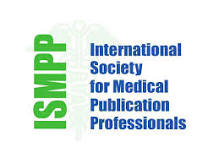Several years ago, I attended the International Society for Medical Publishing Professionals (ISMPP) annual meeting. As a presenter, I was introducing attendees to a new initiative called CrossCheck. Our company, iParadigms, had recently partnered with CrossRef, a non-profit providing several services to the scholarly publishing community including Digital Object Identifier (DOI) registration. The partnership was straightforward. CrossRef's publisher and society members would receive access to iThenticate for use in editorial review in return for allowing us to index their published content. Where plagiarism detection software is concerned, the primary value is the world of content against which you can compare manuscripts. My introduction of the CrossCheck initiative received mixed reviews. Many wondered how the use of our software would impact existing editorial processes. Would efficiencies be affected? Would the scholarly research community support the effort?

1. Editorial due diligence. Why not process and review an iThenticate similarity report prior to a journal editor doing the same?
2. Editorial efficiency. Using iThenticate in advance of submission could serve to reduce correspondence with editors potentially shortening time to publication.
3. Strengthen QA. Medical writing professionals could leverage use of iThenticate to gain new customers as well as retain existing.
4. Improve hiring criteria. Evaluate sample manuscripts from potential new hires and freelancers before making decisions to bring on staff or contract medical writers.
5. Peace of mind. Medical writing professionals are not always working with investigators from day one. In these instances, an iThenticate evaluation could alleviate concerns about research efforts to date.
iThenticate has seen substantial use across the ISMPP membership already (several agencies have licensed for multiple years). And as a result of our recent attendance at the society's 10th annual meeting, we have launched several iThenticate trials. In our efforts to better understand the nuances of scholarly publishing, we are pleased to have learned a great deal about how pharma, agency and individual medical writers fit into the broader research and publishing ecosystem. Preparing research for publication requires a specific skill set. iThenticate is ideally designed to complement that expertise.
A special thanks to Michael Platt, president at MedVal Scientific Services. He was instrumental in helping me to navigate this year's ISMPP gathering in Fairfax, Virginia.
The opinions expressed here are my own and do not represent the views of iThenticate.
Related
Plagiarism in Medical Research Resources
Related
Topics: Technology